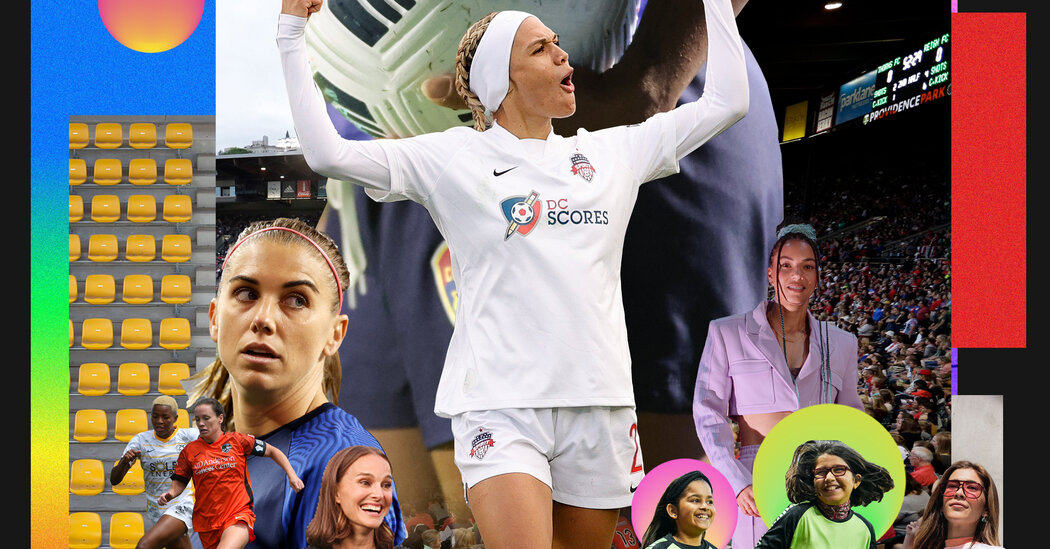
If the league’s first momentum shift was one of collective action by its players, the second was the introduction of a club like Angel City, a team conceived, founded and run by women.
“We wanted to show that we were different,” Uhrman, the team president, said. “That we could lead with purpose but also have a goal of being profitable. And showing that this is a real business, and investing in women and investing in women’s sports is actually a good investment.”
Angel City executives are eager to discuss the club’s goals, which include a focus on investing in Los Angeles — club sponsors are required to put 10 percent of the value of their sponsorships into local organizations — and equity for its players. Angel City players who allow the use of their likeness to promote the club, for example, will receive 1 percent of net ticket revenue this season.
It’s a difficult line to walk, though, to be seen as both a charitable endeavor and a business opportunity dusted by celebrity — all while fielding a competitive team.
“The shiny veneer, the incredible photo op, the great social media branding is one thing, but how will this actually affect the lived experience of these athletes?” said Dr. Courtney M. Cox, an assistant professor at the University of Oregon who studies issues of labor, identity and technology in sports. “What is this actually doing for anyone besides the investors themselves being able to say, ‘Look I own a team’?”
Further complicating the glowing reception that Angel City has received is the assumption that a club founded by women — Uhrman, the actress Natalie Portman and Kara Nortman, a venture capitalist — and majority-owned by women somehow guaranteed things would be better for its women’s players.
“To say, ‘We’re going to buy this team and therefore we’re empowering women’ — what are you empowering them to do? What are you empowering them for?” said Sarah Banet-Weiser, a communications professor at the Annenberg Schools at the University of Pennsylvania and the University of Southern California. “If it’s just continuing to grow the brand, how is that going to change the sexist structure of athletics?”